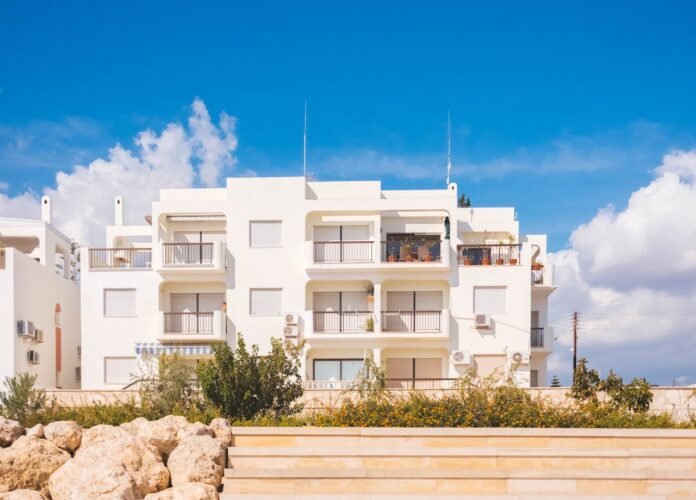Last Updated on March 4, 2025 by Rida Gul
Table of Contents
Understanding the Phuket Property Market Dynamics
The Phuket property market, long driven by international demand and a vibrant tourism sector, is undergoing significant changes in 2024. The first quarter alone has demonstrated a dynamic shift, marked by a surge in new developments and changing buyer preferences. This period has seen a remarkable rebound following the pandemic, driven by a renewed influx of tourists and heightened interest from foreign investors, particularly from Russia and China.
First Quarter 2024: An Overview of Market Activity
The first quarter of 2024 has been a record-setting period for the property market in Phuket. According to data from the Thai Real Estate Research and Valuation Centre,source Star Media, there were 25 new projects launched, introducing around 4,000 units with a combined value of 54 billion baht. This translates to an average price of 13 million baht per unit, underscoring the premium nature of many of these developments. The majority of these new properties are vacation condominiums located in the Thalang District, which has become a hotspot for luxury real estate due to its proximity to popular beaches, international schools, and new infrastructure developments.
The robust performance in the first quarter is a clear indicator of Phuket’s recovery from the pandemic’s economic impact, with the real estate sector showing resilience and growth. The demand for properties has been driven by a combination of factors, including the return of international tourism, geopolitical developments, and new government policies aimed at attracting foreign investment.
Key Drivers of Market Growth in Early 2024
1. Tourism Revival and International Demand: The reopening of international borders and resumption of regular flights have led to a strong resurgence in tourism, a key driver for Phuket’s property market. The return of Chinese tourists and increased interest from Russian investors—many of whom are looking for safe investment opportunities amidst geopolitical uncertainties—has significantly boosted demand for both villas and condominiums.
2. Russian Investor Influence: Russian buyers have become a dominant force in Phuket’s property market in early 2024, driven by both economic and geopolitical factors. The island’s appeal as a safe haven for capital and as a residential destination has led to significant investments in luxury properties, with a notable preference for villas priced between 20 to 26 million baht and condominiums ranging from 5 to 10 million baht. This trend has been bolstered by new visa programs and the recent opening of a Russian consulate in Phuket, which underscores the island’s strategic importance to this demographic.
3. Changing Buyer Preferences: The first quarter of 2024 has also seen a notable shift in buyer behaviour. According to C9 Hotelworks, resale transactions accounted for 68% of property sales from January to April, indicating a growing preference for established properties over new developments. This trend is particularly evident in the market for single-family homes, where resales now constitute 70% of transactions. Buyers appear to be gravitating towards properties that offer immediate availability and perceived value, a shift from the previously even split between primary and secondary market sales.
4. Emerging Markets and Diversifying Buyer Base: Beyond the traditional Russian and Chinese markets, other international buyers from countries like the UK, the US, France, Australia, and Italy have also shown strong interest in Phuket’s real estate. Notably, India has emerged as a growth market, with increasing numbers of Indian buyers looking to invest in Phuket properties. On the domestic front, Thai buyers continue to make gains across all property classes, reflecting a healthy and diverse buyer base.
New Developments and Expanding Market Areas
The scale of new development in the first quarter of 2024 is extensive, particularly in the Cherng Talay and Thalang districts. These areas have seen rapid growth, with new projects catering to a wide range of buyers—from luxury villas to more affordable condominium units. The development is not limited to the coast; it is extending further inland to areas such as Bang Jo, Blue Tree, Pasak, and Manik, offering diverse housing options for families and investors alike.
Developers are responding to the increased demand by expanding and offering Phuket property for sale beyond the traditional prime locations. This strategy includes developing more affordable housing options near top international schools, making them particularly appealing to families. The expansion into previously underdeveloped areas is not without challenges, however. Issues such as rising land prices, potential traffic congestion, and water scarcity are becoming more pronounced as urbanisation accelerates.
Impact of Crackdowns on Nominee Structures
The stricter enforcement of Thailand’s laws regarding foreign property ownership and the use of Thai nominees to circumvent these regulations has been a significant development in 2024. The crackdown in Phuket, notably through “Operation Nominee Sweep,” targeted illegal business practices that allowed foreign nationals to gain control over properties and land that they were not legally allowed to own. This crackdown led to the arrest of 231 suspects, including 98 foreign nationals, mostly Russians, and the seizure of assets valued over 1.5 billion baht.
During this operation in Phuket, authorities uncovered extensive use of Thai nominees by foreign investors. This practice involves foreign nationals using Thai citizens to hold land or property on their behalf, a direct violation of the Land Code of Thailand, which restricts foreign land ownership. The crackdown revealed a complex web of nominee arrangements, including 225 bank accounts, 245 land documents, 196 passports, and documents linked to the establishment of 800 companies, highlighting the widespread nature of these illegal activities.
The impact of this crackdown is already being noticed with Phuket agents reporting several market trends. There has been a shift in the market for property in Phuket, with foreign investors now increasingly cautious about how they structure their investments. Some investors have turned towards leasehold properties and freehold condominiums, which offer ownership rights without the complications associated with company holding structures. This shift is particularly pronounced at lower price points, where leasehold villas, which do not require a company, have become more prevalent. However, at higher price points, it remains a viable option to use a well-structured Thai company to acquire a freehold villa, provided the company is genuinely operated as a business – such as generating rental income – with legitimate Thai shareholders, no nominees, regular dividend payments, and compliance with requisite financial reporting.
Developers have also responded to these legal changes by adjusting their strategies. Many are now more focused on developments that can be marketed most easily due to minimum legal complications, such as leasehold villas and freehold condominiums. The uncertainty and risks associated with company holding structures have deterred new luxury freehold villa developments, pushing developers to offer properties that align more closely with legal guidelines.
Proposed Legal Reforms and Their Potential Impact
The Thai government’s proposed legal reforms, which became public knowledge in June this year, aim to ease restrictions on foreign property ownership, potentially reshaping the real estate landscape in Phuket and other resort destinations. Now approved by the cabinet, but not yet enacted, two key proposals include extending the maximum lease period for residential properties from 30 years to 99 years and increasing the foreign ownership quota in condominiums from 49% to 75%.
1. Extending Lease Periods to 99 Years
The proposal to extend lease periods from 30 to 99 years represents a significant shift towards making Thailand’s property market more accessible to foreign investors. Currently, the 30-year lease term, often renewable up to 90 years, presents certain risks and uncertainties, particularly around the enforceability of renewals. By allowing a 99-year lease, the government aims to provide greater security and stability, encouraging long-term investment in Thailand’s real estate sector. This change would particularly benefit investors looking for more secure, long-term investment opportunities in places like Phuket, where land ownership by foreigners is otherwise restricted.
2. Increasing Foreign Ownership in Condominiums to 75%
The proposal to increase the foreign ownership quota for condominiums from 49% to 75% could significantly boost foreign investment. Currently, only 49% of a condominium’s total floor space can be owned by foreign nationals on a freehold basis. Raising this limit to 75% would allow more foreign investors to legally own property directly, thereby expanding the pool of potential buyers and driving up demand. This change is particularly pertinent in resort areas like Phuket, where condominiums are popular among foreign buyers both for personal use and as rental investments.
Economic and Market Implications of the Proposed Reforms
If enacted, these legal reforms could lead to substantial changes in the Phuket property market. Extending lease terms would make the market more attractive to foreign investors who are often deterred by the short lease durations and the complexities involved in renewing leases. Longer lease terms would reduce these uncertainties, likely increasing demand for both land and residential properties. Furthermore, increasing the foreign ownership quota in condominiums would likely raise property values and stimulate new development projects, especially in areas popular with international buyers.
Real estate experts and industry insiders have largely welcomed these proposed changes, viewing them as a positive step towards enhancing Thailand’s attractiveness as a real estate investment destination. The potential influx of foreign capital could stimulate economic growth, create jobs, and lead to further development of infrastructure, which would benefit both the local economy and the broader Thai market.
However, while these proposed reforms present significant opportunities, they also come with challenges. The increased foreign presence in the property market may lead to concerns about rising property prices, potentially making housing less affordable for locals. Additionally, the transition to new legal frameworks could create temporary uncertainty as investors and developers adjust to the changes.
Market Outlook for the Rest of 2024
The Phuket property market in 2024 is positioned for continued growth and transformation. The crackdown on illegal nominee structures is starting to reshape the market dynamics, pushing both developers and investors towards more compliant investment strategies. Simultaneously, the proposed legal reforms offer the chance of a more open and attractive market for foreign investors, which could further drive demand and development.
As these trends unfold, investors and developers alike will need to stay informed and adaptable to navigate the evolving landscape. Even without the enactment of any proposed legal reforms – which have yet to become law – the Phuket property market is already experiencing significant growth. The first quarter of 2024 has been a record-setting period, underscoring Phuket’s status as a compelling destination for property investment, offering diverse opportunities amidst a backdrop of dynamic market activity and potential legal changes.



























